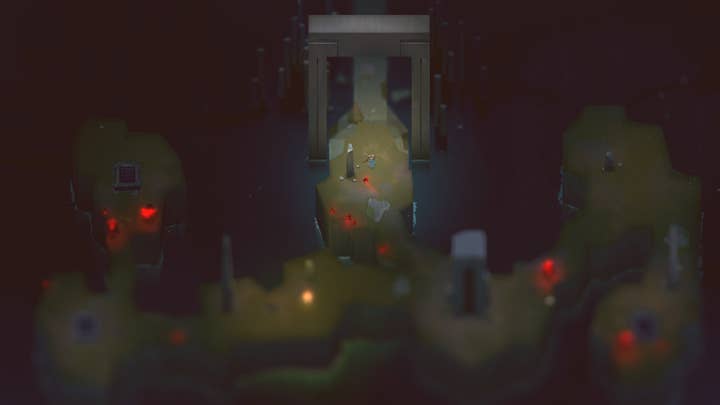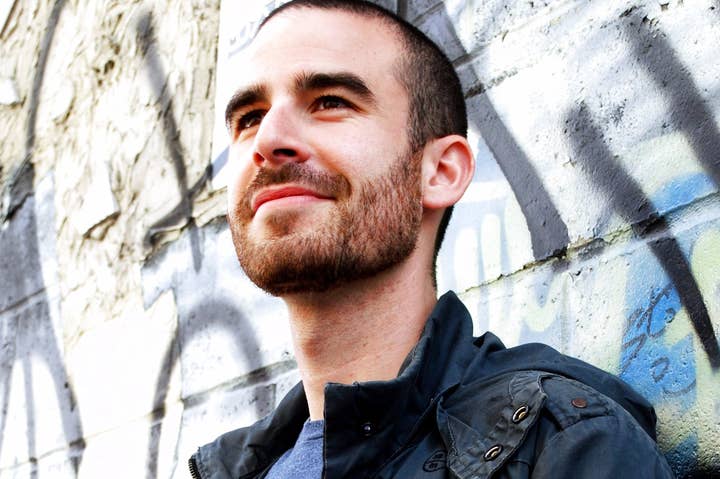Capybara Games: Happy Birthday Mr. President
Studio president Nathan Vella reflects on a decade of indie development
Toronto studio Capybara Games, best known as Capy, just celebrated its tenth birthday, which is no small achievement in an industry where even the giants can stumble and fall. Co-founder and president, Nathan Vella, is happy to admit that Capy has had its stumbles too, but it's learnt a lot from them.
"I think we started in the industry when PS3, 360 and Wii was starting to happen and we started out doing cellphone games before there were smartphones. We made games for flip phones that had like two colours. We were literally making videogames that had to fit in 64KB of memory. Now we're making games on virtually every platform that exists," he laughs.
"Having started doing work for hire and then having fought our way through and given ourselves the chance to do our own work I think we really respect that privilege, that right."
"We were literally making videogames that had to fit in 64KB of memory. Now we're making games on virtually every platform that exists"
So if I handed him the keys to a pimped out DeLorean what would he change? What past wrongs would he set right?
"I think our focus right now is exactly what we always wanted it to be. We didn't get there because that's what we always wanted to be, we got there because we figured out how to be that type of studio and why we should be that type of studio. Without fucking up as many times as we did we wouldn't have gotten there," he shrugs.
"We've made games that we lost money on for sure but those games were critical in our growth as a company and our growth as creators and given the opportunity, knowing that we would have put all this time and effort into something that cost us rather than made us, I would still do it again because I know how important that was. It would still suck just as much, maybe even more, but I have very few regrets."
I'm speaking to him at the Gaming Insiders Summit in San Francisco where he's giving a talk called Opinions On Indie Development Are Like Assholes: And I've Got One and he makes a lot of good points, but one stands out. He warns developers against choosing sides when it comes to platforms, something that sounds simple but that the ID@Xbox situation a few years ago proved otherwise.
Capy didn't choose sides, and in fact the head of Xbox, Phil Spencer, wore a Capy tshirt during the E3 Xbox presentation. Vella prefaces the subject matter with a caveat, he can only speak to Capy's experience and clearly doesn't want to speak ill of other developers or the platform holders.
"I definitely think that there are things that Microsoft ate shit for that they probably deserved. I also think that it probably might have ballooned out of proportion at the same time," he says, tactfully.
"To me it's all about...if I got angry at a company for a thing that a company did, I would never align with any company ever, right? Literally every company I know has done something on a company level that I disagree with in some way, shape or form. To me it's about the personal relationships with the people inside of the studios."
He name checks Chris Charla, head of the ID@Xbox program, and later Adam Boyes at Sony. Charla was supportive during the development of Super Time Force for Xbox One, despite Capy taking their time.
"They literally did not care that we were working on the game one day a week for a while, it was just a think where it was super easy and part of that was because I had that relationship with Chris and Chris understood what we were trying to do, he was able to like vocalise that to the rest of the people and they could understand it."

"And this is the same thing with our relationship with Sony, we go way back. We were in the early wave of developers to put independent, downloadable titles on PS3. We've been working with some of the same people since at least 2009. I've had some really close relationships with people that are still there and still work with us."
He even puts in a word for Nintendo, which isn't known for its support of the indie developer.
"Absolutely - Nintendo's making massive efforts to be more accessible. It started with Dan Adelman and again, if you want to talk about who is getting bum raps I think Nintendo got some pretty harsh tokes."
He points to Guacamelee!, Yacht Club Games' Shovel Knight and 13AM's Runbow, a game that started out as a student project.
"Whether or not there's this whole indie apocalypse thing, whether or not it is a tough time, a challenging time - and it is pretty confusing - I think one of the straight paths through it is make something good, promote the hell out of it, find that audience and then try another platform and try and find that audience," he explains.
"Make something good, promote the hell out of it, find that audience and then try another platform and try and find that audience"
"The cost of porting these games, PS4 and Xbox and PC are not that different of machines. The cost of porting is relatively low especially if you have good people to do it or good partners to do it with. I think it's relatively easy to do, it's relatively inexpensive to do, it has a huge upside and worst case it doesn't find a huge market I still think that it has a chance to be profitable on a lot of platforms. And that's what we do."
He points out that the long tail of three platforms is still better than the long tail of one or two. Even if it only brings your studio only a few hundred dollars a week, when that's coming in from three platforms it starts to make a difference.
Right now Capy is working on Below, a gorgeous looking top down adventure game for Windows and Xbox One, and Shipwrecked, an expansion for Klei's Don't Starve. It is, at first glance, an unusual project for Capy, at least until you realise Vella and Klei's Jamie Cheng are close friends and the decision was made over a few beers.
"I was just joking about how we didn't want to dive right into another big challenging design problem immediately after Super Time Force," he says.
"Jamie was just like 'well actually why don't you just do a Don't Starve expansion?' A week later we started working on it and we came up with some ideas what we thought would be rad, they come up with some ideas that they thought would be rad. sSome of our ideas were way too far off, some of their ideas might have been not far off enough, but the whole reason why it kind of happened was that both of us were interested in seeing what would happen with Don't Starve if a studio like ours made something that still fitted into Don't Starve."
The project brings with it two main challenges, working with someone else's code (even though, Vella says, the two studios have a similar way of working) and staying true to the Don't Starve experience while still innovating.
"I think that would have been very disingenuous to players to be like hey it's called Don't Starve but here's something totally different. All that stuff that you love? Out the window! Suckers!"
"The experience is almost taking the macro of vanilla Don't Starve and turning it into micro experiences per island, to ask the player to stitch together those islands to form the Don't Starve experience."


